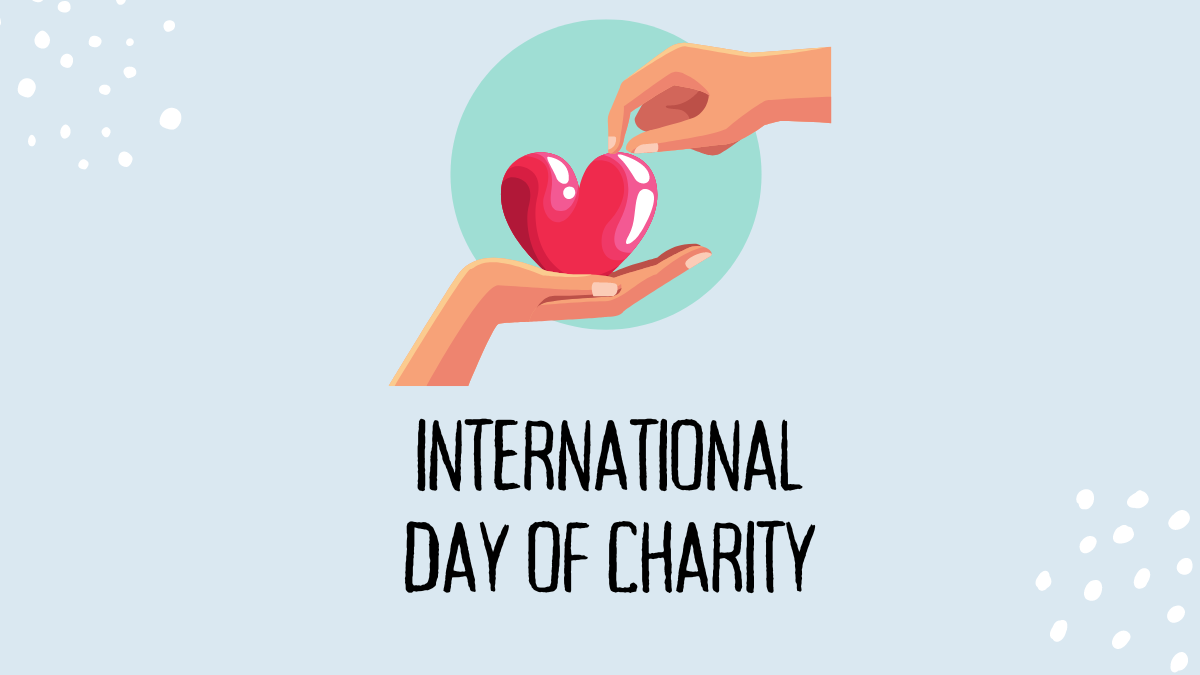The International Day of Charity, observed annually on September 5th, serves as a reminder of the transformative power of philanthropic activities in addressing some of the world’s most pressing issues. In an era of global challenges, charity stands as a beacon of hope, fostering social bonds and contributing to the creation of inclusive and resilient societies.
The Role of Charity in Modern Society
Alleviating Humanitarian Crises
Charity plays a crucial role in mitigating the effects of humanitarian crises worldwide. Through swift and targeted interventions, charitable organizations can provide immediate relief to those affected by natural disasters, conflicts, and other emergencies.
Supplementing Public Services
In many regions, charity fills critical gaps in essential services:
- Healthcare: Providing medical supplies, funding research, and supporting healthcare facilities
- Education: Offering scholarships, building schools, and supplying educational materials
- Housing: Constructing shelters and supporting affordable housing initiatives
- Child Protection: Establishing safe spaces and programs for vulnerable children
Advancing Culture and Science
Philanthropic efforts contribute significantly to the promotion of:
- Cultural preservation
- Scientific research
- Sports development
- Protection of natural and cultural heritage
Advocating for the Marginalized
Charity often serves as a voice for the underprivileged, advocating for their rights and bringing attention to overlooked social issues. In conflict situations, it spreads messages of humanity and peace.
The 2030 Agenda on Sustainable Development
Eradicating Poverty: A Global Challenge
The United Nations’ 2030 Agenda, adopted in September 2015, recognizes poverty eradication as the greatest global challenge and an indispensable requirement for sustainable development.
Key Aspects of the Agenda
- Global Solidarity: Calls for strengthened cooperation, focusing on the needs of the poorest and most vulnerable.
- Diverse Stakeholder Involvement: Acknowledges the role of various entities, including:
- Micro-enterprises
- Cooperatives
- Multinational corporations
- Civil society organizations
- Philanthropic institutions
The 17 Sustainable Development Goals (SDGs)
The SDGs provide a framework for philanthropic institutions to contribute to global betterment. They can be grouped into six critical areas:
- People
- Planet
- Prosperity
- Peace
- Partnership
The International Day of Charity: Origins and Significance
Objectives
The day was established to:
- Sensitize people globally about the importance of charity
- Mobilize NGOs and stakeholders for philanthropic activities
- Encourage volunteerism and helping others
Choosing the Date: Honoring Mother Teresa
The date, September 5th, commemorates the death anniversary of Mother Teresa of Calcutta, a Nobel Peace Prize laureate renowned for her charitable work.
Mother Teresa: A Paragon of Charity
Early Life and Calling
- Born as Agnes Gonxha Bojaxhiu in 1910
- Went to India in 1928 to help the destitute
Founding the Missionaries of Charity
- Became an Indian citizen in 1948
- Founded the Missionaries of Charity in Kolkata in 1950
Legacy of Service
- Over 45 years of ministry to the poor, sick, orphaned, and dying
- Expanded the Missionaries of Charity globally
- Established hospices and homes for the poorest and homeless
Recognition and Awards
- Received numerous awards and distinctions
- Awarded the Nobel Peace Prize in 1979
United Nations Recognition
In recognition of the vital role of charity in addressing global challenges, the UN General Assembly designated September 5th as the International Day of Charity through resolution A/RES/67/105.




 World NGO Day 2026: Why February 27 Matt...
World NGO Day 2026: Why February 27 Matt...
 International Polar Bear Day 2026: Why P...
International Polar Bear Day 2026: Why P...
 95th Martyrdom Day of Chandra Shekhar Az...
95th Martyrdom Day of Chandra Shekhar Az...








